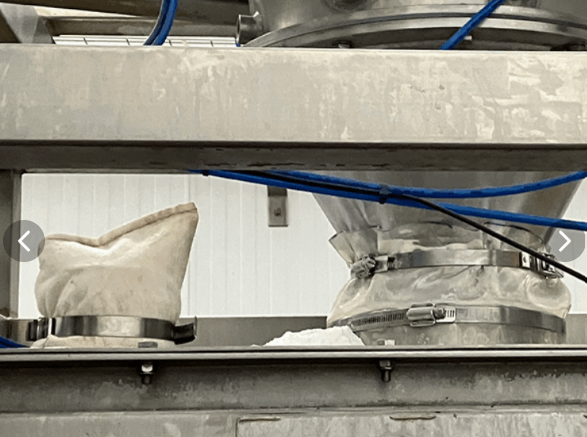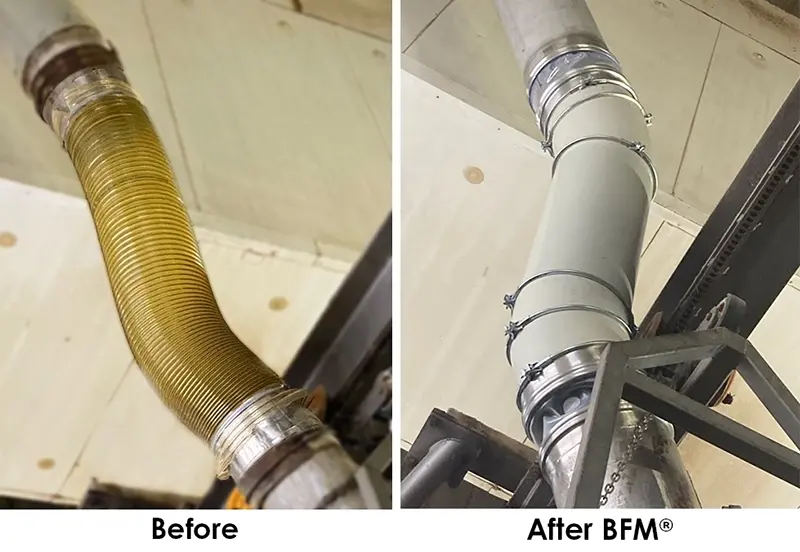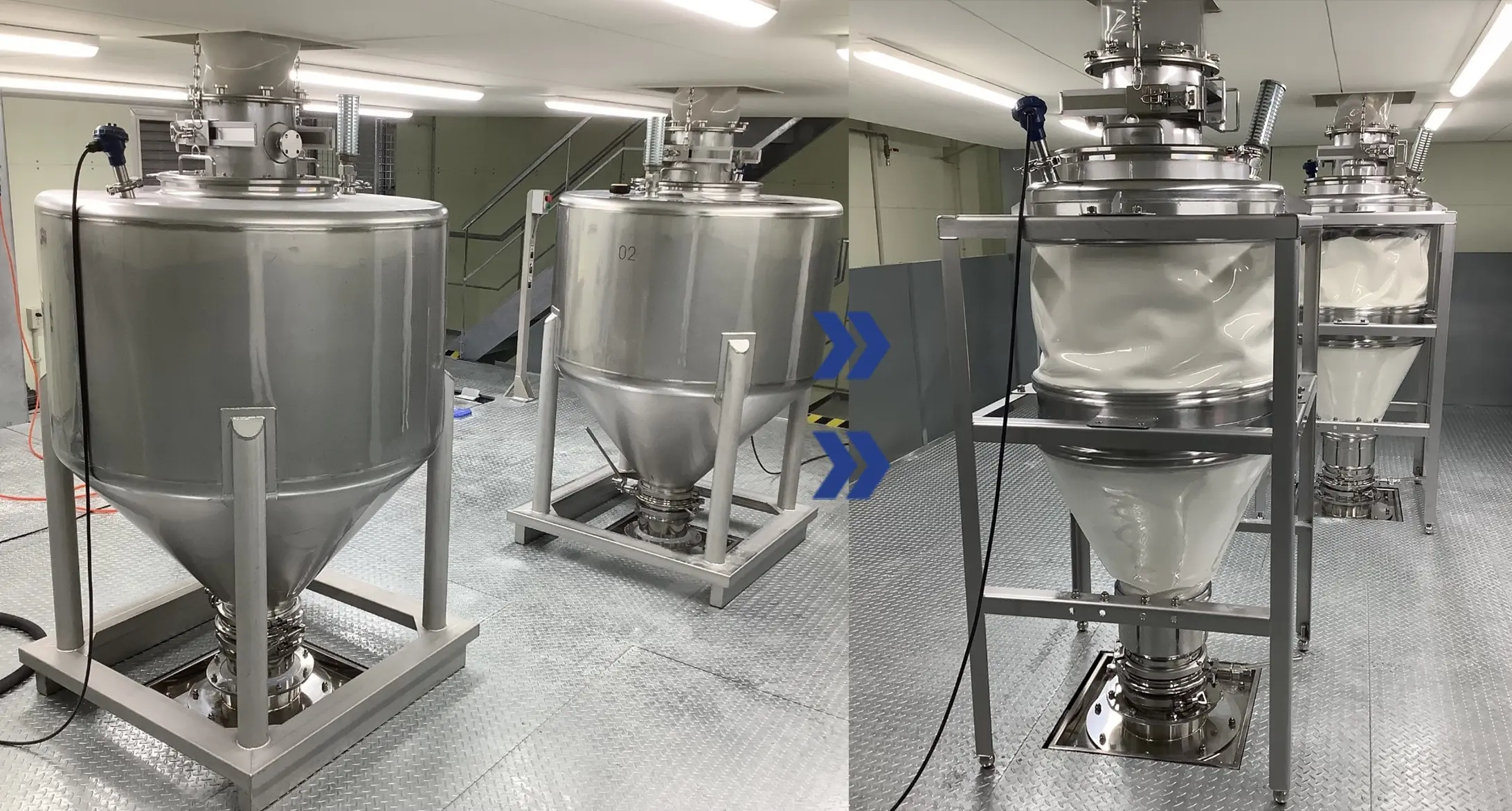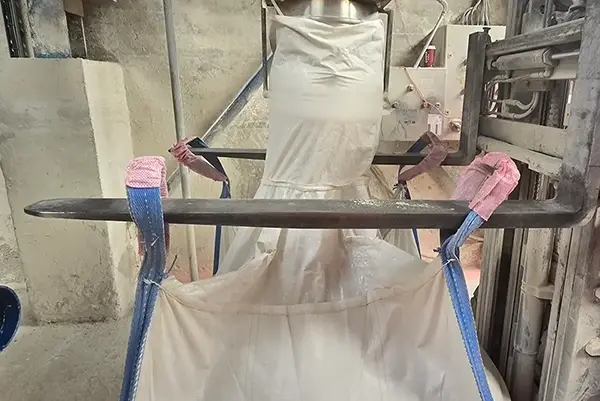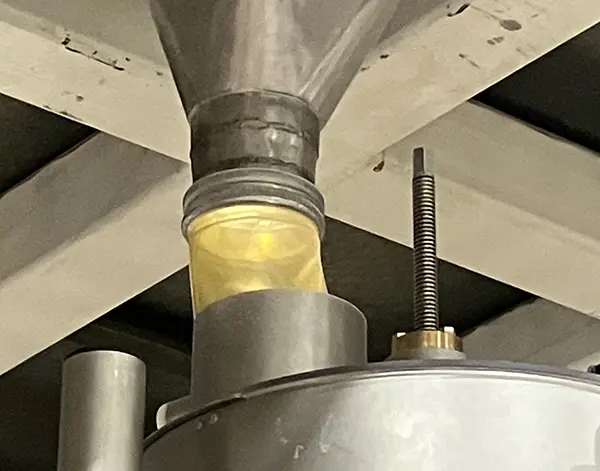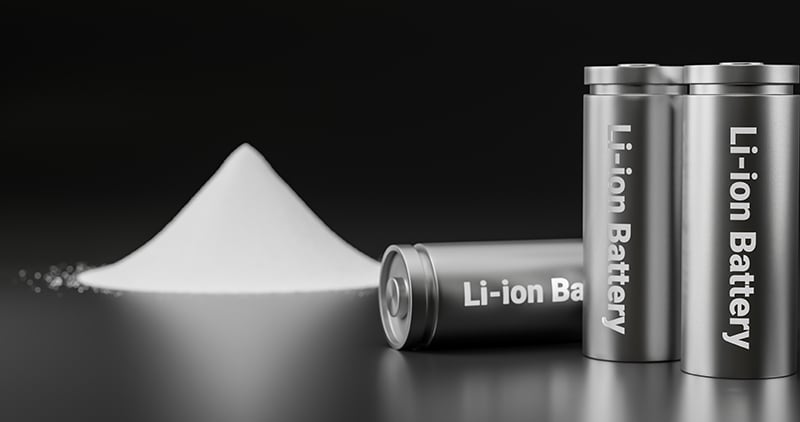
The global demand for lithium-ion batteries has skyrocketed with the growth of the electric vehicle (EV) market, which accounts for almost 80% of battery usage. International pressure for governments to implement zero-emission transport policies and high oil prices are accelerating this growth, and global battery manufacturers are responding with massive expansion plans.
This increased demand for batteries is forecast to grow by more than 25% annually, and there have been predictions that over one hundred giga-size factories need to be built to keep up with demand until 2030.
Hand in hand with this massive growth in battery production is the increase in raw materials processing (for cathodes and anodes) as well as the development of battery component recycling technologies to deal with the batteries at the end of their usable life cycle.
As more and more 'giga-factories' and battery recycling plants are built, the nature and value of the materials involved in all stages of a battery's life mean it's important that the equipment being used in all processes has high-quality safety and performance capabilities.
Quality equipment imperative for safety and efficiency
One of the major concerns from a health and safety perspective is that many of the minerals involved in battery manufacturing, such as cobalt lithium oxides, are potentially harmful to humans when in powder form in the air. Battery component minerals are also often expensive, so any potential contamination or loss of these products during processing due to leakage or connector failures has a real effect on production efficiency and profitability.
Therefore, keeping these powders 'inside the process' without contaminating the factory environment or the product itself is extremely important for the entire battery manufacturing process. Investing in quality equipment for all stages of production is essential - but any machinery is only as good as the flexible connection system that links the processes together. The unfortunate reality, however, is that keeping your plant hygienic and 100% dust-free is virtually impossible with traditional connectors.
Extremely fine powders pose challenges
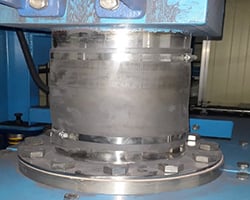 Powders involved in the battery industry, like lithium nickel cobalt manganese oxide and carbon black, are extremely fine and are difficult for traditional clamped flexible connections to keep contained. Because standard sleeves are fitted on the outside of a pipe with an external clamp, finer powders like these naturally find a way to escape via the small folds that occur in the sleeve material, particularly when there is pressure in the system. Leakage is often accentuated on vibratory equipment like sifters.
Powders involved in the battery industry, like lithium nickel cobalt manganese oxide and carbon black, are extremely fine and are difficult for traditional clamped flexible connections to keep contained. Because standard sleeves are fitted on the outside of a pipe with an external clamp, finer powders like these naturally find a way to escape via the small folds that occur in the sleeve material, particularly when there is pressure in the system. Leakage is often accentuated on vibratory equipment like sifters.
Unlike traditional clamp and sleeve connections, the BFM® fitting system seals from the inside of the pipe so they’re 100% dustproof - even with super-fine powders, and they only seal tighter under pressure. This means there is no product lost from the process, and the general factory environment is much cleaner and safer.
Dust leaks from standard flexible connectors not only cause an unhealthy atmosphere for staff to breathe, but products like lithium powder are highly combustible. This means the potential for secondary explosions is a very real and serious safety risk. The BFM® fitting system not only reduces the possibility of dust being released into the air but, should an explosion occur, our popular Seeflex range of products has been proven to contain internal explosions in excess of 60kPa.
They have also been independently tested for ATEX compliance for additional assurance.
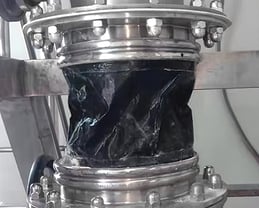
A very versatile material, Teflex NP black (shown right) can operate comfortably up to 300ºC / 572ºF and can withstand short-term surges to 316ºC / 600ºF. This material is also highly static dissipative (surface resistivity of 106 ), reducing the risk of electrostatic build-up, and this makes Teflex NP Black an excellent option for lowering your ATEX risk.
Prevention of production downtime a priority
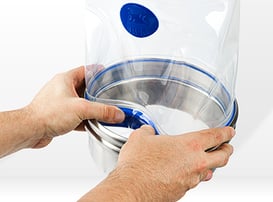 Downtime for maintenance is costly for any manufacturer, but even more so with high-grade, premium products like the powders involved in the battery industry. That's why quality equipment coupled with preventative maintenance is particularly important. Traditional clamped flexible connectors can have variable installation lengths and tolerances and often require time-consuming adjustments to reinstall correctly. Therefore, time to disassemble and reassemble connections for cleaning or general maintenance can be a major factor in maintenance and operational efficiency.
Downtime for maintenance is costly for any manufacturer, but even more so with high-grade, premium products like the powders involved in the battery industry. That's why quality equipment coupled with preventative maintenance is particularly important. Traditional clamped flexible connectors can have variable installation lengths and tolerances and often require time-consuming adjustments to reinstall correctly. Therefore, time to disassemble and reassemble connections for cleaning or general maintenance can be a major factor in maintenance and operational efficiency.
The snap-fit installation of the BFM® fitting system means that once the spigots that house the BFM® fitting BLUEBAND™ connectors are installed, most change-overs can be carried out in less than 40 seconds, so expensive downtime is a thing of the past.
An added bonus of the BFM® Seeflex range of products is that they are transparent. This allows you to see your product flowing without having to remove the connection, helping to assure quality control.
